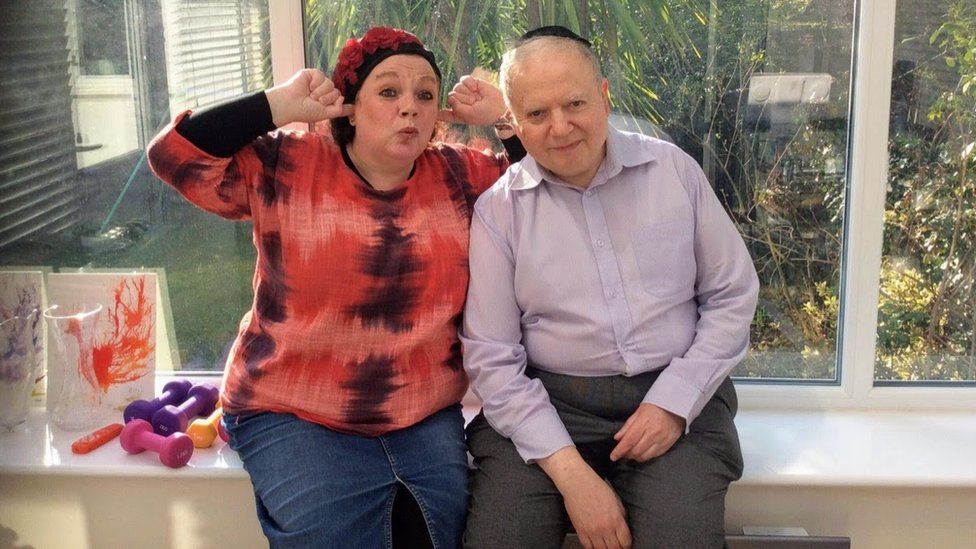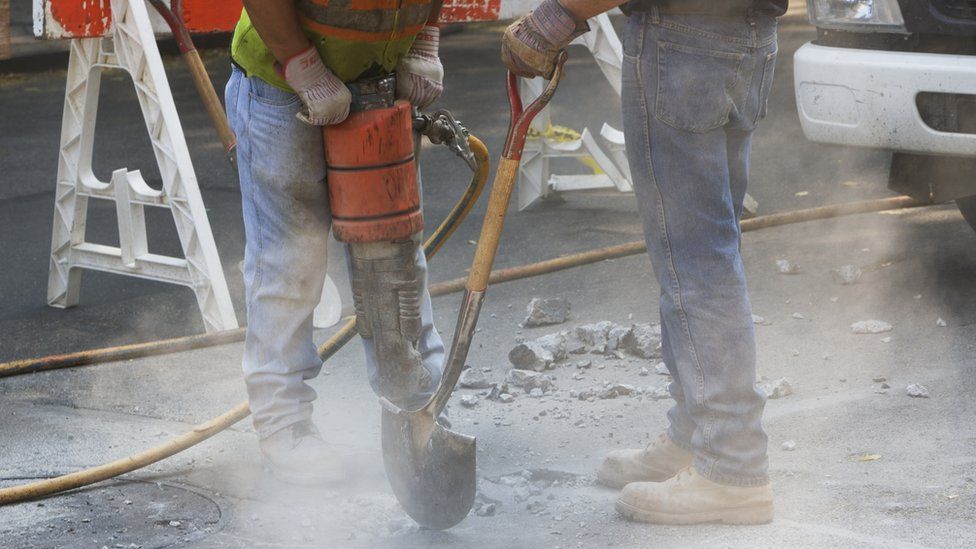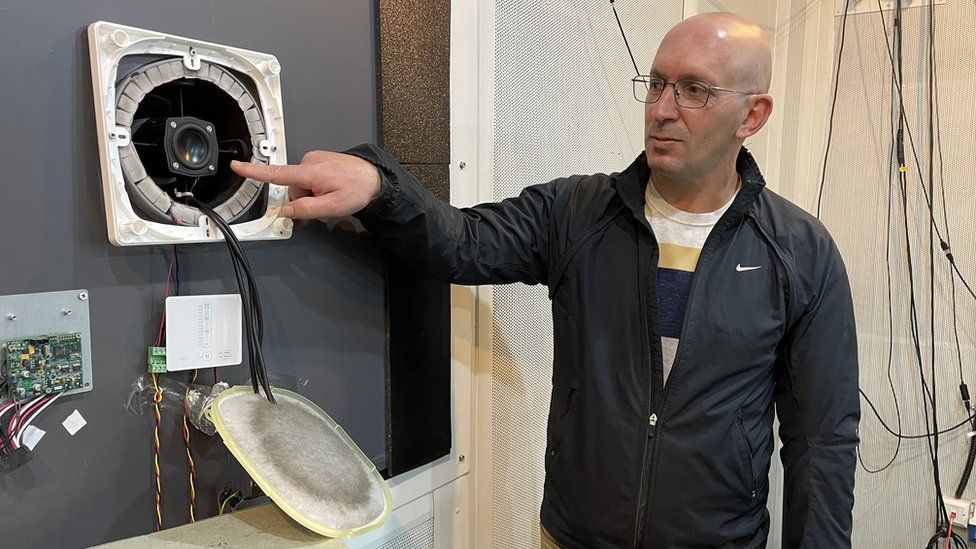Beating noise pollution with smart tech

Sue Pearl and her husband David wake up feeling grumpy every morning.
“My husband snores so loudly that the whole house shakes,” says Sue.
David, a 65-year-old solicitor from London, has tried just about everything to cure the problem, from nasal drops and strips, to sprays, and even an electric bracelet that gave him a mild electric shock.
Yet nothing has worked, and even his ears, nose and throat doctor is at a loss.
“I’m often woken up, my sleep is so disturbed, so I’ll send him to the spare room,” says Sue, who is a voice-over artist. “It’s a nightmare. It’s exhausting living with a snorer, neither of us sleep properly, it really isn’t great for any relationship.”
It is not just the sound of a snoring partner that can affect your quality of life. From living near a busy road or airport, to noisy neighbours, or blaring music, noise pollution can have a detrimental impact on your mental health.
In fact, the European Environmental Agency says that excessive noise is actually killing people. It estimates that long-term exposure causes 12,000 premature deaths per year across the European Union.
Meanwhile, the World Health Organization says that noise pollution is an “underestimated threat that can cause a number of short and long-term health problems, such as, for example, sleep disturbance, cardiovascular effects, poorer work and school performance, [and] hearing impairment”.

Aside from good old ear plugs and noise-cancelling headphones, a number of tech companies have been scrambling to find new ways to drown out increased unwanted sound.
One such firm is Israeli business Silentium, which says that its “Quiet Bubble” system can significantly reduce unwanted sound – even if it is coming from a husband lying beside you in bed.
The technology is based around a speaker and microphone. How it works is rather complicated, but in simple terms the microphone listens to the unwanted sound, and then the speaker emits a noise that cancels it out.
For readers that want a more technical explanation – computer algorithms process the unwanted noise, and the speaker releases the same sound waves, but in the opposite phase, or back to front. This creates interference, which cancels out much of both sounds.

Called active noise cancelation, it has existed in headphones for a number of years, but companies like Silentium have developed the technology to work without having to put a pair of cans over your ears.
“You can fit our speaker and sensors to your bed’s headboard, and the sound of your partner’s snoring would be dramatically reduced, as it generates ‘anti-noise’,” says Silentium’s chief executive Yoel Naor.
He adds that the technology could also be used in cars. “Your kids could be in the back playing Disney on full blast, or even arguing, and you wouldn’t be able to hear much in the front.”
The company says its technology can also create “individual sound zones”, whereby the sound from an array of speakers is focused on a very specific area of space, and minimised outside of that zone or bubble. The idea is that someone on a train, or plane, can listen to music or watch a film without headphones, and yet still not bother people sitting nearby.
In his laboratory Mr Naor has two chairs side by side to demonstrate how this directional sound projection works. Depending on which seat you sit in you hear a different song being played through the assorted speakers. And you cannot hear the other tune.
Silentium is already working with carmaker Jaguar Land Rover, and hopes to interest other car firms, plus trains and airline companies with its tech.


New Tech Economy is a series exploring how technological innovation is set to shape the new emerging economic landscape.

In some situations you want other people to hear a noise, such as a warning sound when a lorry is reversing. But ideally, you only want people close to the vehicle to hear the sound, and not the surrounding neighbourhood.
Brigade Electronics, based in Kent, makes such reversing alarms – they are only audible to those pedestrians, and others, in close proximity. They work by emitting sounds that dissipate after 10 metres or so.
“A ‘ssh ssh’ white noise can be heard clearly in the danger area, even when wearing ear defenders, headphones or for those with hearing impairment, but it doesn’t wake up the entire neighbourhood.” says Emily Hardy, marketing manager at Brigade.
She adds that the firm’s speaker releases “gentle” short-travelling multi-frequency sounds, rather than “painful” narrowband frequencies that carry through the air for much longer distances.
Its systems have been fitted to everything from airport buggies, to supermarket delivery vehicles, diggers and some electric cars.
Poppy Szkiler is the co-founder and chief executive of UK-based Quiet Mark, a global certification programme that awards everything from consumer products to building specifications, hotels, shops, and transport companies for their low noise levels.

She says that a “quiet revolution” is taking place, with the need to reduce unnecessary noise having “shot to the top of priority lists in environment and health agendas” over the past two years.
She says this was partly to do with coronavirus lockdowns meaning that the noise in cities fell by half. “And the work from home movement brought an awareness to the impact of sound with all of life happening under one roof,” she says.
Ms Szkiler established Quiet Mark a decade ago, but her family has been tackling excess noise for three generations.
Back in 1959 her grandfather John Connell founded the Noise Abatement Society, a charity which has now campaigned against noise pollution for 63 years.
His lobbying helped to push the 1960 Noise Abatement Act through the UK parliament. It legally recognised noise as potential nuisance or pollutant for the first time.

Talya Ressel is a psychotherapist based in London who works with people with high sensitivity to noise. In particular, she helps people deal with the challenges of misophonia, a condition whereby certain noises can trigger a strongly negative emotional response.
“We are bombarded by more sounds than ever before,” she says. “Understand that sounds, that you may not even hear or notice, can have a very different effect on others.
“If you can not avoid an unwanted sound, and noise-cancelling headphones and white noise aren’t options, then you need an active plan to manage the situation. Ignoring the issue doesn’t mean that your body is not reacting or being affected.”
Ms Ressel adds: “Try to find a few minutes every day where you sit in active silence. It’s giving you a chance to reset after being bombarded by sounds all day.”



